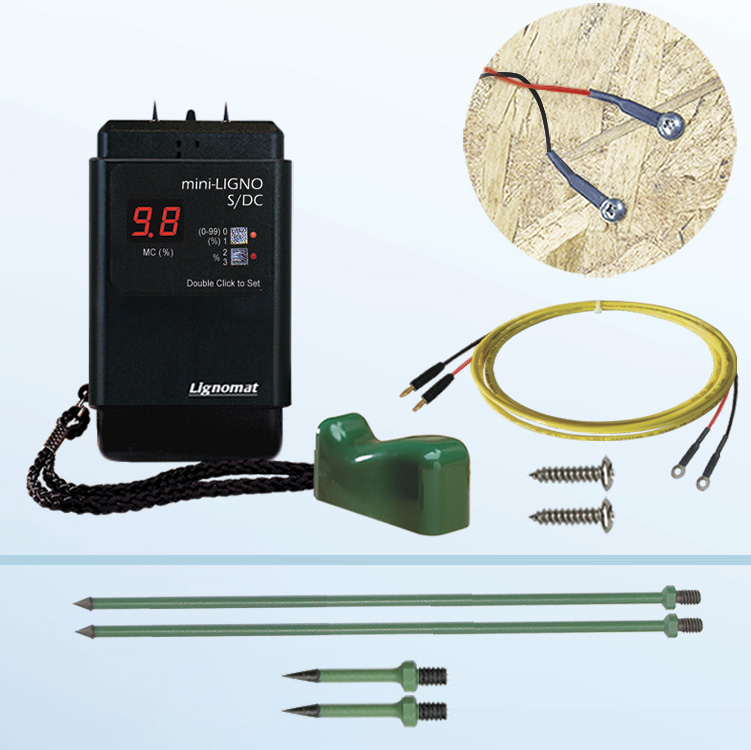Moisture Meter Reviews: Contrasting the Best Designs for Specialist and Do It Yourself Use
Moisture Meter Reviews: Contrasting the Best Designs for Specialist and Do It Yourself Use
Blog Article
The Ultimate Guide to Moisture Meters: A Comprehensive Summary and How They Can Save You Money
In the realm of structure upkeep, building, and different markets, the significance of accurately gauging dampness degrees can not be overstated. Moisture meters act as indispensable devices in detecting and keeping track of moisture content in products, aiding in preventing costly problems and guaranteeing the quality of items. Understanding the nuances of various sorts of moisture meters, their applications, and the prospective cost-saving advantages they provide can be a game-changer for experts and businesses alike. Uncovering how these devices can not only simplify processes yet also add to financial savings is a trip worth embarking on.
Kinds of Moisture Meters
One typical kind is the pin-type wetness meter, which determines the electric resistance in between 2 pins put into a material. Pinless wetness meters, on the other hand, use electromagnetic sensing unit plates to check a bigger location without creating damages to the product's surface.
Infrared wetness meters measure the thermal residential or commercial properties of a product to identify its wetness material non-invasively, making them useful for applications where pin or pinless meters might not be appropriate. Understanding the various types of dampness meters offered can aid markets choose the most appropriate device for their specific dampness measurement demands.

Benefits of Using Moisture Meters

Furthermore, using dampness meters can lead to increased energy effectiveness. In agricultural setups, wetness meters play a vital function in optimizing plant returns by enabling farmers to keep an eye on soil dampness levels and make notified watering decisions.
Just How to Pick the Right Moisture Meter
Selecting the appropriate wetness meter involves taking into consideration essential elements such as material compatibility, dimension variety, and calibration accuracy. When picking a moisture meter, it's important to ensure that the meter is appropriate for the particular product you will be testing. Different materials have varying electrical properties that can influence dampness analyses, so choosing a meter made for your product is important for exact outcomes. Furthermore, take into consideration the dimension variety of the moisture meter. Make certain that the meter can identify moisture degrees within the variety needed for your applications. Calibration precision is an additional important variable to remember (Moisture Meter). Opt for a dampness meter with trusted calibration to ensure constant and precise analyses. Some meters may call for periodic calibration changes, so understanding the calibration procedure is necessary. By very carefully evaluating these aspects, you can choose a wetness meter that fulfills your requirements and offers exact moisture her response measurements for your tasks.
Proper Methods for Moisture Meter Usage
To make certain exact wetness readings and maximize the effectiveness of a moisture meter, employing appropriate strategies is important. When making use of a pin-type dampness meter, place the pins or probes right into the product being checked until they make complete get in touch with. By adhering to these appropriate methods, users can count on their wetness meter to provide credible moisture levels, aiding in avoiding expensive damage or guaranteeing top quality in numerous applications.

Cost Cost Savings With Moisture Meter Applications
Just how can the calculated utilization of moisture meters lead to considerable price savings throughout different sectors? Wetness meters play a critical function in expense financial savings by protecting against possible damages and guaranteeing high quality control in various industries. In the farming market, dampness meters aid in figuring out the optimum time for harvesting plants, preventing over-drying or excess dampness that can influence the end product's top quality. This exact surveillance assists farmers avoid unneeded losses and optimize their return.

Furthermore, in the food processing market, moisture meters are crucial for checking product quality and making certain compliance with safety and security guidelines. By properly determining wetness content in food items, producers can protect against perishing, preserve quality, and decrease waste, resulting in substantial expense savings. Generally, the tactical application of moisture meters is an important investment that can result in significant cost reductions and boosted efficiency across various sectors.
Conclusion
To conclude, wetness meters are valuable devices for discovering and measuring dampness degrees in various materials. By using the appropriate dampness meter and complying with appropriate methods, customers can effectively prevent expensive damages caused by excess moisture. Spending in a quality dampness meter can cause considerable price financial savings in the lengthy check my reference run by recognizing prospective problems early on and allowing prompt removal. Inevitably, moisture meters are necessary instruments for maintaining the integrity and longevity of products and frameworks.
Wetness meters offer as essential devices in spotting and keeping track of moisture content in materials, assisting in avoiding costly problems and guaranteeing the quality of products. Infrared wetness meters determine the thermal buildings of a product to determine its moisture material non-invasively, her response making them valuable for applications where pin or pinless meters might not be ideal.Dampness meters provide indispensable benefits in accurately monitoring and evaluating moisture levels in diverse products and environments. In agricultural setups, wetness meters play a crucial function in maximizing plant yields by allowing farmers to monitor dirt dampness degrees and make educated irrigation decisions.In conclusion, moisture meters are beneficial devices for determining and identifying moisture degrees in various materials.
Report this page